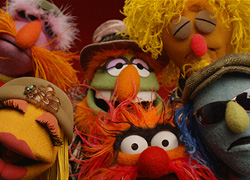I've always wondered a few things about the "Fair-use" principle...see if anyone can help me.
First of all, I used to run a business copying vinyl, cassettes, 8-tracks, and VHS to CD's for people, and this falls well within this category. However, since it is called a "Safety copy", and this is OK, what do they expect you to do with the copy if something terrible happens to the original? I mean, you're allowed to have a copy if you have the original, so if the original is damaged or lost, you can still have a copy to enjoy, but if you no longer have the original, do you have to destroy the "safety copy"? And, if so, what is the point of the "safety copy" if you can't keep one for safety? Secondly, who sets out to prove what records/tapes/CD's you ONCE owned and now only have a copy of? And how do they prove it's a "borrowed" or rented copy and not one you made off of something you bought and then tragically lost in a mudslide or something? My wife and I once had over 1000 LP's, but they were too big to move with us a few years ago, so we made some cassette mixes of our favourites, then put those tapes on CD's. Where does that fall? Of course we owned the records at one point, but who can prove it? On a mix with 20-odd songs on it from records I once owned, what if ONE song was from one of my neighbour's records?
Just wondering. My head is spinning now.
eric

 Welcome to the Muppet Central Forum!
Welcome to the Muppet Central Forum! Back to the Rock Season 2
Back to the Rock Season 2 Sesame Street Season 54
Sesame Street Season 54 The Muppets Mayhem premieres
The Muppets Mayhem premieres Bear arrives on Disney+
Bear arrives on Disney+ Sam and Friends Book
Sam and Friends Book